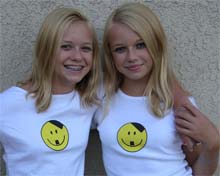After two days of deadline work, I’m finally getting around to this – the much-anticipated NY Times review of Jung Chang and Jon Halliday’s biography, Mao: The Unknown Story. The review is a must-read because it’s fair and balanced and illuminating.
I still haven’t read Mao, but the review confirms my own initial thoughts (which still might be wrong; won’t know until I read it for myself): that the book does indeed offer reams of evidence that Mao was the true scum of the earth, worse than the Great Dictator, worse than Stalin or Chiang Kai Shek or Pol Pot, worse tham anybody. But the authors also hurt themselves by over-generalizing and making blanket assertions that they fail to back up with evidence.
In their new book, “Mao: The Unknown Story,” Jung Chang and Jon Halliday make an impassioned case for Mao as the most monstrous tyrant ever. They argue that he was responsible for “well over 70 million deaths in peacetime, more than any other 20th-century leader,” and they argue that “he was more extreme than Hitler or Stalin” in that he envisioned a brain-dead, “completely arid society, devoid of civilization, deprived of representation of human feelings, inhabited by a herd with no sensibility, which would automatically obey his orders.”
Ms. Chang, the author of “Wild Swans,” a best-selling memoir that chronicled her family’s sufferings under Mao, and her husband, Mr. Halliday, a British historian, drew upon newly available material from secret Chinese and Soviet archives for this volume, and they interviewed hundreds of people, including intimates, colleagues and victims of Mao. Their hefty if tendentious and one-dimensional book contains a plethora of valuable new information that helps flesh out the record of devastation left by this heinous tyrant.
The book demonstrates just how brutal and conniving Mao was in his rise to power, maps out the key role he played in fomenting the Korean War and reveals the huge degree to which he was dependent on Stalin both in coming to power and in trying to turn China into a nuclear superpower. The authors write that “close to 38 million people died of starvation and overwork” during the Great Leap Forward and an accompanying famine. This, they contend, was a result not of economic mismanagement but of cold political calculus. They argue, further, that Mao launched his deadly Cultural Revolution as a means of purging those officials (like his No. 2, Liu Shao-chi) who had dared to question his catastrophic Great Leap Forward policies.
Unfortunately, I really don’t want to read a one-dimensional account of Mao’s life (or anyone’s life). To me, a good biography has to offer an historiographical account, making the reader feel he or she is there in that time, in that place, learning not just about the life of the “hero,” but about the psychological and historical factors that shaped him. Now, this book may contain all of these aspects, but from what I’ve read so far, I’m skeptical. I already know Mao was the quintessential dick.
One of the problems with this volume is that Ms. Chang and Mr. Halliday offer little insight into Mao’s behavior. There are few clues to childhood or adolescent ordeals (aside from having a father he disliked) that might have shaped his pathological psyche, no assessment of philosophers (like Nietzsche or Machiavelli, say) who might have influenced his philosophy, no analysis of the dictator’s mature writings that might shed light on his politics or values.
The authors also provide scant historical context for Mao’s ascendance. They do not put their subject in perspective with the imperial tradition in China, nor do they examine the social and economic circumstances that helped make the country susceptible to his rise and malign rule. To make matters worse, they occasionally make gross generalizations that cannot be proved: for instance, they write that during the Cultural Revolution, when students were exhorted to assail their teachers, “there was not one school in the whole of China where atrocities did not occur.”
Such questionable assertions undermine the authors’ purpose and are thoroughly gratuitous: Mao’s crimes against humanity, documented in this volume and elsewhere, are so heinous and so gargantuan that they hardly need to be hyped.
Again, I’ll reserve final judgement, but have to admit I’m approaching it with a big grain of salt.

Comments